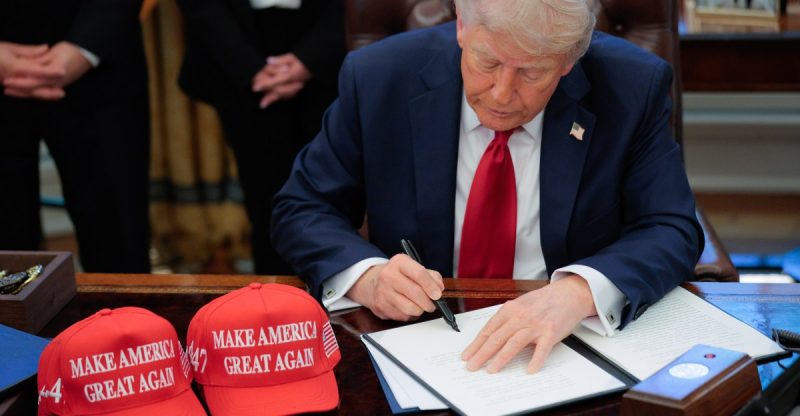
President Donald Trump recently signed an executive order targeting the legal principle of ‘disparate impact,’ a cornerstone of civil rights law. This principle holds that certain practices can violate federal civil rights laws even without proof of intentional discrimination, if they disproportionately affect certain demographics. For example, an employer’s policy of refusing to hire individuals with prior arrests might seem neutral, but if it disproportionately impacts a specific racial group, it could be deemed illegal under disparate impact analysis.
Trump’s executive order aims to minimize the use of disparate impact liability, essentially rolling back regulations and deprioritizing enforcement. This action doesn’t eliminate disparate impact entirely—it was established in a 1971 Supreme Court ruling—but it signals a significant shift in the administration’s approach to civil rights enforcement. The order also suggests that state laws utilizing disparate impact could be challenged as illegal.
This move has been lauded by some conservatives who argue that disparate impact is misused and extends beyond its intended purpose. They claim it creates unfair burdens on businesses and organizations. However, civil rights advocates strongly oppose the order, fearing it will weaken protections against discrimination and allow discriminatory practices to go unchecked. They argue that disparate impact is a crucial tool for addressing systemic inequalities that may not be overtly intentional but nonetheless have devastating real-world consequences.
The future of disparate impact now hinges, in part, on the Supreme Court’s stance. Conservative justices may be receptive to overturning the existing precedent, potentially altering the landscape of civil rights law significantly. The implications of this executive order are far-reaching and will likely be subject to legal challenges and intense debate for years to come.
Beyond the legal complexities, the broader impact of this executive order is a matter of ongoing concern. It represents a potential rollback of decades of progress in protecting vulnerable communities from discrimination, raising questions about the administration’s commitment to equality and justice. The debate over disparate impact is far from over, and its resolution will have profound implications for the future of civil rights in the United States.










